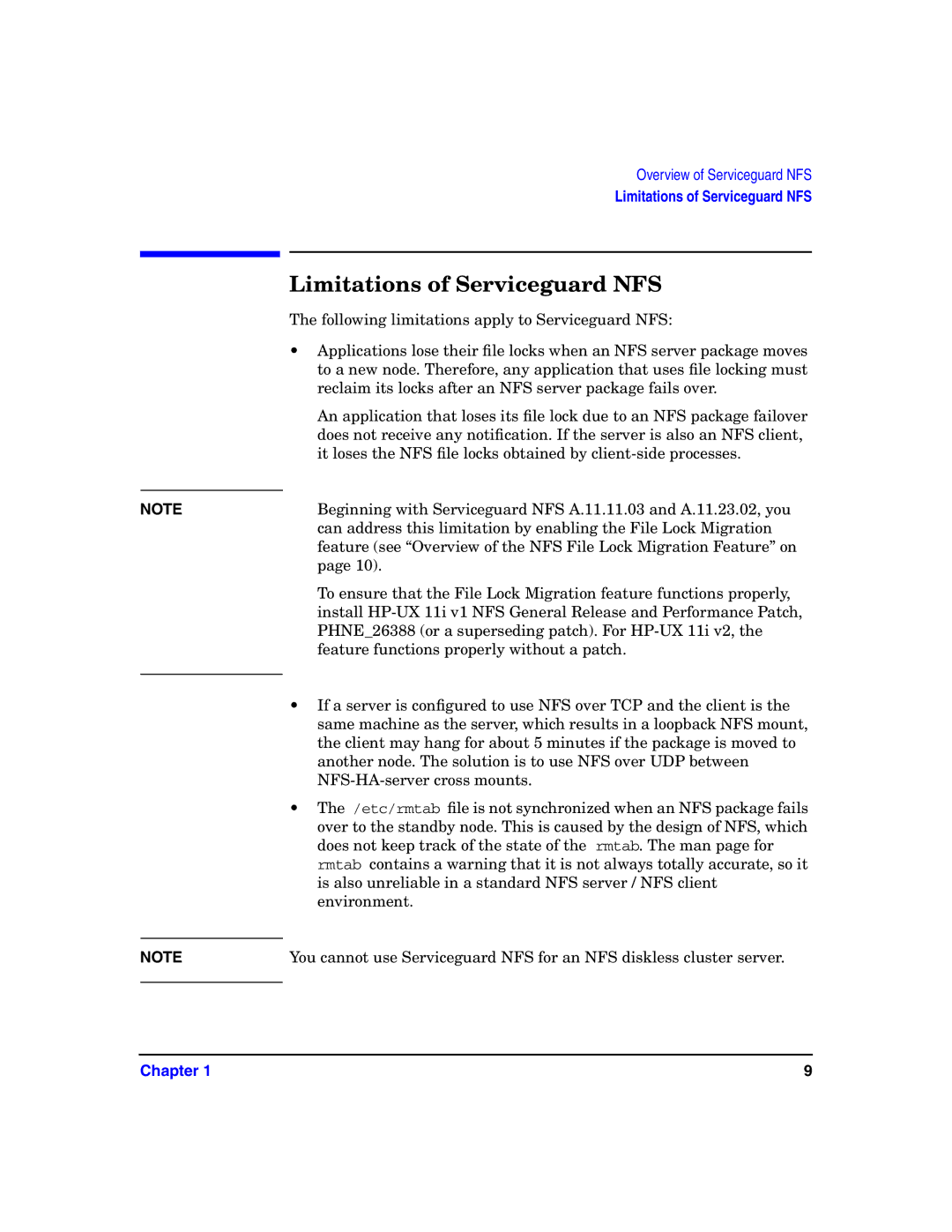
NOTE
NOTE
Overview of Serviceguard NFS
Limitations of Serviceguard NFS
Limitations of Serviceguard NFS
The following limitations apply to Serviceguard NFS:
•Applications lose their file locks when an NFS server package moves to a new node. Therefore, any application that uses file locking must reclaim its locks after an NFS server package fails over.
An application that loses its file lock due to an NFS package failover does not receive any notification. If the server is also an NFS client, it loses the NFS file locks obtained by
Beginning with Serviceguard NFS A.11.11.03 and A.11.23.02, you can address this limitation by enabling the File Lock Migration feature (see “Overview of the NFS File Lock Migration Feature” on page 10).
To ensure that the File Lock Migration feature functions properly, install
•If a server is configured to use NFS over TCP and the client is the same machine as the server, which results in a loopback NFS mount, the client may hang for about 5 minutes if the package is moved to another node. The solution is to use NFS over UDP between
•The /etc/rmtab file is not synchronized when an NFS package fails over to the standby node. This is caused by the design of NFS, which does not keep track of the state of the rmtab. The man page for rmtab contains a warning that it is not always totally accurate, so it is also unreliable in a standard NFS server / NFS client environment.
You cannot use Serviceguard NFS for an NFS diskless cluster server.
Chapter 1 | 9 |
